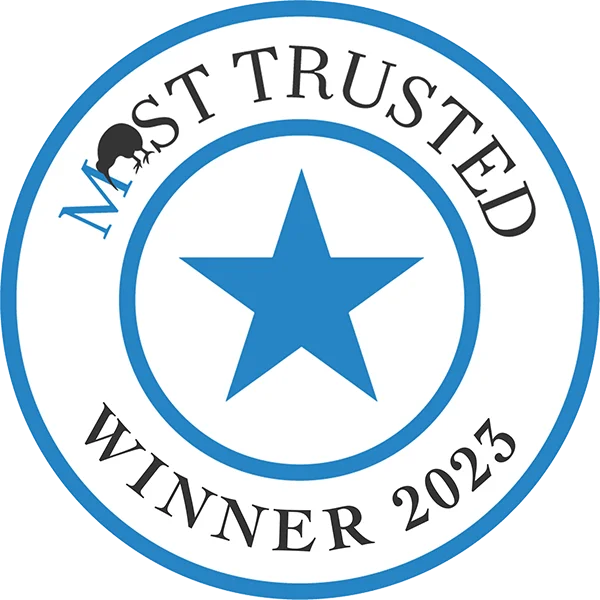Frequently Asked Questions
What is Granite?
Generally, granite is made up of plutonic rock which is predominantly composed up of 35% Quartz, 45% Feldspar / Potassium and is incredibly dense. There are many different quarries on every continent around the world and this gives the variety of colours. Much of the granite available today was formed about anywhere from a few million years to over a billion years ago – prior to life on the planet. It makes up over 70% of the earth’s crust. It typically measures 6 to 6.5 on the Hardness Scale of rock. Diamonds measure 10 on the same scale.
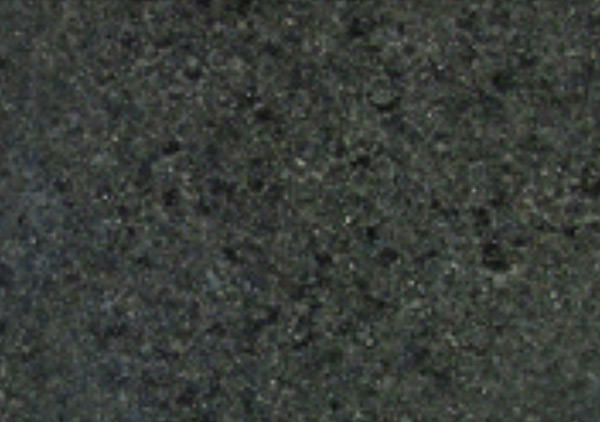
What is Marble?
Marble is crystallised limestone, made up primarily of calcium and dolomite. It measures 3 on the hardness scale of rock. Care needs to be taken with marble benches as they can mark or etch with acids such as lemon juice.

What is Quartzite?
Both Granite and Quartzite are very hard, but on the Moh’s Scale of Hardness (with 10 being the hardest), quartzite has the slight edge. It measures around 7 – 8 where granite is around 6 to 6.5. While quartzite is slightly harder than granite, it’s important to understand that it’s not bullet proof.
One of the main features that sets quartzite apart from granite is that quartzite slabs are denser. This density gives quartzite slabs an unmatched durability when comparing natural stone benchtops to one another.
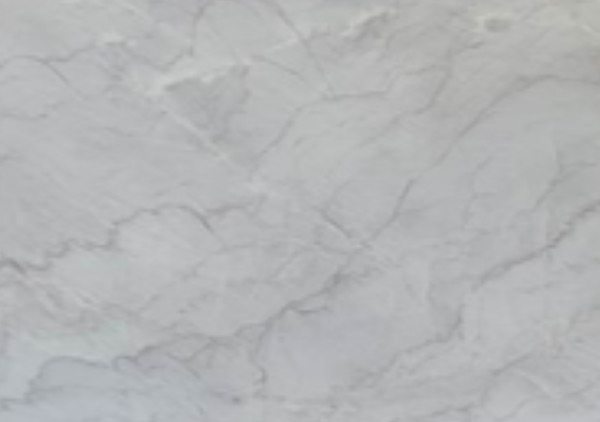
What is Quartz (engineered stone)?
Quartz (also known as Engineered stone) is made from 91-95% natural quartz chips and fillers, with a 5-9% resin binder. These are combined together and “cast” and then cured to produce sheets of stone. Several different trading names are used, and the stone supplier will have detailed specifications of testing. The main advantage of engineered stone is that it has a more uniform look, especially in lighter colours and Replica’s of the Marble look are becoming amazingly accurate.
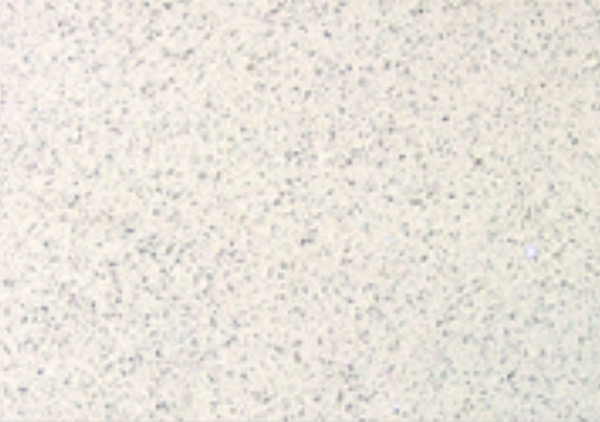
What finishes are available?
Stones may be finished in polished, honed or leathered finishes. All are professionally sealed with the latest specification sealers for maximum durability and stain resistance.
Honed provides a matt low sheen finish. Reduces reflections & easy to maintain.
Polished surfaces are smooth, emphasising the brilliant colours and grains of natural stone.
Leathered enhances it’s natural movement. Reduces reflection as per honed.
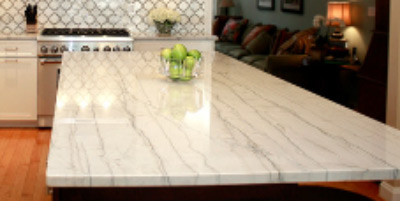
Pricing?
Benchtop pricing will vary depending on the stone chosen. The fabrication costs include cutting, polishing, templating and installation. Therefore we treat every job individually and will quote specifically for your design or plan.
Where does your stone come from?
We choose the best quality granites from around the world.
What about the edges?
There are a variety of edge types. The most popular and cost-effective is the Pencil Arris. All showing edges are polished.

How long will it take to get my bench top?
Once your quote is confirmed and template booked in, it will generally take around 10 days from templating to installation. In some cases we can do a quicker turnaround.
Will the bench top scratch?
Under normal conditions, no. Granite, quartz and quartzite are largely scratch resistant. However, diamond or tungsten implements can scratch the surface.
How do I clean and maintain my bench top?
Your natural stone benchtop/s have been treated with a sealer matched to the type of stone and type of surface you have chosen. In most cases sealer will not need to be re-sealed again however this is not an impervious coating and care is required to keep your top from damage.
Engineered Stone (Quartz) does not require re-sealing.
Quartz is a resin based product which has been pre-sealed.
For a deep clean, use hot water with a mild PH neutral soap, then dry off with a towel.
You can use Lithofin Easy Clean for use on benchtops in all materials. This is available from any branch of Tile Warehouse or Tile Depot.
We Advise
Use a board or trivet for hot pots.
Do not stand on your benchtop.
Do not use abrasive or citrus based cleaning products.
Always clean up spills immediately – prevention is key!
How thick is the stone?
Standard slabs are 20mm and 30mm thick. Not all types of stone are available in both 20mm and 30mm.
What is mitred?
This is when two pieces of stone are cut on an angle and joined together. Very thick edges can be achieved by laminating or mitre-laminating along the front edges of the bench top. In this way, drop-apron fronts of 40-200m deep bench edges can be achieved, giving the appearance of a much thicker block
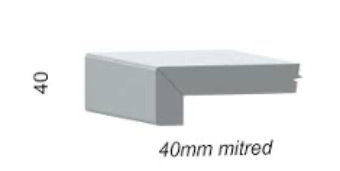
Is there a restriction on the size?
As a rule of thumb, granite slabs are just over 3 metres long by 1.8 metres high. Quartz is generally 3200mm long by 1800mm high. Anything bigger than this will require joining. Different brands of engineered stone do vary in size slightly, with Jumbo slabs available from some brands.
Where will the joins be located?
This depends on the slab size and the location of hobs, sinks and the design of your kitchen. We will attempt to place any join where it will have the least impact both aesthetically and functionally.
Will the join be noticeable?
Our joins are 1-2mm wide. They are filled with a matching coloured epoxy to make them unobtrusive.
Are there any defects in the stone?
Any defects that detract from the appearance or quality of the stone will be removed at cutting. However, being a natural product, slight occlusions and veins may occur on the stone, which we feel enhance the natural beauty of the product. At times, slight colour variations can occur between batches and shipments. If you are concerned, you may call us and inspect your slab of stone before we start cutting it.
Do you have a showroom?
Our showroom Opening hours are:
Monday – Friday 9:00am to 5:00pm
Saturday – 9:00am to 1:00pm
Sunday – 9:00am to 1:00pm
Are there any special requirements of the joinery beneath stone tops?
No. Standard kitchen joinery will support a stone bench top. However, special support maybe needed for overhangs of more than 300mm.
What Regions do Stone Warehouse Service?
We provide service from the top of the North Island right through to Rotorua.
LUXURY MYSTERY BREAK T&C’s
Terms & Conditions – Luxury Mystery Break
This outlines the complete Terms and Conditions governing the Stone Warehouse “Win a Luxury Mystery Break for Two” Incentive, running in January and February 2026.
1. Competition Overview & Promoter
- Promoter: Stone Warehouse Ltd.
- Competition Name: Win a Luxury Mystery Break for Two.
- Summary: This incentive is open to customers who purchase a qualifying Kitchen Benchtop package during the Purchase Entry Period. Entry requires mandatory attendance at the grand draw to claim the prize.
2. Eligibility & Entry Period
- Purchase Entry Period: The competition runs from 06th January and 28th February 2026 (inclusive).
- Qualifying Purchase Requirement (Automatic Entry): The entrant must purchase ANY Kitchen Benchtop package valued at $8,000 or more during the Purchase Entry Period. This purchase is the required eligibility for claiming the major prize.
The purchase value includes material, fabrication, and installation, but excludes GST/tax. - Eligibility: Open only to New Zealand residents aged 18 years or over.
- Non-Eligibility: Employees and their immediate family members are excluded from claiming the major prize.
3. Entry Methods and Chances Required
Entry is gained via two methods:
Automatic Entry (required for prize claim) and Social Media Bonus Entry (for extra chance).
| Entry Type | Chances Gained | Requirement |
|---|---|---|
| Automatic Entry | One (1) Entry |
Purchase a Kitchen Benchtop package valued at $8,000 or more between 06th January and 28th February 2026 |
| Social Media Bonus Entry | One (1) Extra Entry |
Complete all steps:
|
Export to Sheets
- Note: Social Media entries are considered bonus entries only. The eventual winner must still meet the $8,000 or more purchase requirement to claim the major prize.
4. Prize Details
- Prize: A two-night, all-inclusive luxury escape to a secret New Zealand location for two people.
- Prize Components Summary: The prize includes Return Flights, Two (2) Nights Luxury Accommodation, All Meals (Breakfast & Dinner) and a Rental Car.
- Usage Window: The prize must be booked and completed by 31st December 2026.
- Conditions: The prize is non-transferable and non-refundable.
5. Winner Selection & Announcement (Mandatory Attendance)
- Grand Draw Date & Time: The draw will be held at 1:00 PM on Friday, 06th March 2026.
- Draw Location: Stone Warehouse Showroom, 11 Cowley Place, Rosedale Auckland 0632.
- Mandatory Presence: THE WINNER MUST BE PHYSICALLY PRESENT AT THE SHOWROOM OF STONE WAREHOUSE TO CLAIM THE PRIZE.
- Re-Draw: An immediate re-draw will occur if the drawn winner is not present OR if the drawn person does not meet the eligible $8,000+ purchase requirement.
- The winner will be notified using the contact details provided at the time of entry. If the winner does not respond within five (5) days, a new winner may be selected.
6. Flight Information & Conditions
- Flights will be provided in economy class with a reputable commercial airline, departing from the winner’s nearest major domestic New Zealand airport to the mystery New Zealand destination and returning.
- Airline selection and flight times are at the discretion of Stone Warehouse Limited and are subject to availability at the time of booking.
- Checked baggage allowance of one piece per passenger (up to 23kg) and one standard carry-on item are included. Additional baggage fees, if any, will be the responsibility of the winner.
- Any flight changes made after confirmation (including date, time, or passenger name changes) will incur additional costs to be covered by the winner.
- All flights must be booked through the nominated travel provider. The winner must provide valid identification at the time of booking.
- Stone Warehouse Limited accepts no responsibility for missed flights due to personal circumstances, delays enroute to the airport, or failure to adhere to airline check-in requirements.
- Frequent flyer points or status benefits may not be earned or redeemed in conjunction with this prize.
- Flights must be booked and confirmed at least four (4) weeks prior to departure and are subject to the airline’s standard terms and conditions.
7. Liability & Publicity
- Liability: Stone Warehouse Limited is not responsible for any travel disruptions, delays, cancellations, or events beyond its control. The winner and their companion are responsible for securing their own travel insurance. All travel and accommodation arrangements must comply with New Zealand travel requirements at the time of travel.
- Publicity & Marketing: By accepting the prize, the winner agrees to participate in reasonable promotional activities, including providing testimonials or photos. Stone Warehouse Limited may use the winner’s name and images for marketing purposes without further compensation.
8. General Terms
- All decisions made by The Promoter are final. No correspondence will be entered into.
- The Promoter reserves the right to verify the validity of all entries and purchases.
- Stone Warehouse Limited reserves the right to amend, suspend, or terminate the competition at any time without notice.
- By entering, all participants agree to be bound by these terms and conditions. Full terms and conditions are available upon request.

